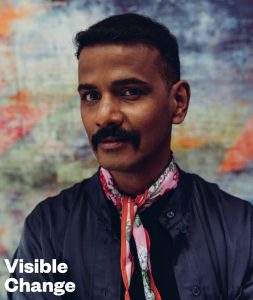While established media attempts to politicise Trans people, a national healthcare emergency is being ignored. Back in June, my Pride speech highlighted major issues facing the Trans community in Ireland with a call to action for the LGBQ+ community and our allies, but unfortunately our plight shows continued deterioration.
Adolescent Trans healthcare collapsed in January this year after contracts with the UK Tavistock clinic expired. Long delays in publishing a report on Trans healthcare that was completed in February last year and not released until Christmas Eve have contributed to no replacement Irish clinic being implemented, and now adolescents are waiting years for a service that does not exist, ageing out and being tossed to the back of the adult queue at 17.
Adding to this, a freedom of information (FOI) request, supplied to the Transgender Equality Network Ireland (TENI) shows the waiting list for the adult National Gender Service (NGS) has increased this year by 126 patients to 790 people by August, potentially resulting in patients waiting up to ten years to be seen.
A June article in the Irish Times claimed that an estimated 420 patients will join the NGS waiting list this year and quotes psychiatrist Dr Paul Moran, stating the NGS assesses 150 new patients annually. However, factoring in list growth, estimates put this number at either 79 or 132 depending on whether 2021 is closer to 2020 or 2019 in terms of numbers added.
The NGS website states it is processing patients referred two and a half years ago. However, using Dr Moran’s figure it is estimated that the current wait is closer to five years with other estimates indicating potential waiting times of up to ten years and climbing.
I myself celebrated my fifth anniversary of coming out this August, and the thoughts of others in my community, still waiting for basic healthcare throughout these formative years, is devastating!
The NGS was unable to provide figures on patients removed from the list citing lack of administrative capacity, stating “current work has commenced on completing a retrospective audit of assessment from 2019”. It also states that 35 percent of new patients require multiple visits for initial assessment.
A recent HSE statement in an interview with my colleague Noah Halpin on the Ray D’Arcy Show does cite plans to hire a CAMHS psychiatrist for adolescents, a potential relocation of the NGS pending funding, as well as claims of only a one to two year wait for adult patients. The figures above however, paint a different story.
TENI believes that this unsustainable situation is being largely compounded by a ‘gatekeeping’ bottleneck, artificially created by a potentially harmful and pathologising model of care (MoC) that goes against evidence based international best practice and World Professional Association for Transgender Health (WPATH) guidelines.
Implementation of WPATH is promised in the current programme for government but is being resisted by NGS clinicians in favour of their own clinically unproven model. The WHO have formally depathologised Trans people with the ICD-11 due for implementation in January 2022- a deadline Ireland shows every sign of missing. Compounding this, there is no patient representation on the governance committee for the NGS chaired by Dr Moran.
The NGS is refusing to engage with TENI in a professional capacity and, despite repeated requests, the Minister for Health is yet to meet us. TENI CEO, Éiréinne Carroll states: “I have sent numerous emails to HSE officials for a meeting in relation to Trans healthcare and have received no response after the NGS suddenly cut ties of communication with us. This leaves myself and our organisation further concerned about who is making decisions around Trans healthcare and what horrible straits we are in.”
Patients have stated publicly or reported to TENI that they are being denied or delayed treatment for reasons such as suspected autism, ADHD, unsatisfactorily answering overtly sexual questions or for not bringing family members into assessments which community members continue to report to us, despite public statements by the HSE to the contrary. Assessments include questions about masturbation, porn habits, sexual history, thoughts during oral sex, detailed genital descriptions of themselves and sexual partners and even racial preferences. GP referral forms now require details of patients’ education, employment and housing situation. Professor Mary Donnelly, Vice Dean of Law, UCC and Co-Chair of the HSE National Consent Advisory Group advised TENI that “…refusal to provide services unless a parent is present may constitute discrimination in the provision of services on the grounds of disability and gender. Mental health law and practice upholds the right to privacy and autonomy of the person, irrespective of their mental health and/or decision-making capacity…This is a requirement under the Constitution and the European Convention on Human Rights.”
The HSE Service Development Model: Appendix Two, authored by Professor Donal O’Shea and Dr Paul Moran lists criteria such as “Comprehensive longitudinal history of Transgender behaviours, including cross dressing. Exploration of sexual orientation and desire (including fantasy, exploration and pornography). Exploration of the history of intimate relationships” as central to hours-long assessments. TENI has learned patients are being required to out themselves to family and engage in ‘real life tests’ for periods of time ranging from six months to two years before access to hormone replacement therapy (HRT), potentially putting people at risk of harassment, violence, loss of employment, familial ostracisation and homelessness. While the HSE claims such pathologising practices are part of a ‘holistic’ MoC when all the above taken in its totality could alternatively be labelled as a ‘guilty until proven innocent’ model.
It’s interesting to note that celebrity psychotherapist Stella O’Malley has come out in support of this MoC on Twitter stating that the NGS “have a very good record for treating patients with GD [gender dysphoria] – they don’t follow WPATH guidelines and consider them “unsafe and unsound” and instead follow their own model”. O’Malley is co-author of an Irish Times piece on the topic of conversion therapy for Trans people, which has prompted a boycott organised by the Trans Writers Union signed by 1,400 people, and Trinity News severing professional ties with the paper. Her accreditation body has yet to release a statement condemning conversion therapy. O’Malley is a member of the Society for Evidence-Based Gender Medicine, described by the Trans Safety Network as an “anti-Trans psychiatric and sociological think tank”. She is also a founder of Genspect, an organisation that supports parents who don’t affirm their Transgender children, espousing the pseudoscientific ‘condition’ known as Rapid Onset Gender Dysphoria (ROGD), condemned by WPATH, the American Psychiatric Association and American Psychological Association .
Other FOI documents released in the spring also point to a dialogue between NGS clinicians and the HSE where Dr Moran cited the Daily Mail regarding the Bell v Tavistock case on Gillick competence which initially ruled that it would be unlikely that an adolescent under 16 could consent to puberty blockers. In this he stated that it was only a matter of time before cases would be taken against the HSE by children attending Crumlin and also claims that the Tavistock assessments were not adequate for prescribing HRT. TENI have publicly called for clarification on these claims that are not based on scientific research but sensationalist news articles but none have been forthcoming. This is especially pertinent now considering the case was completely thrown out on appeal in September and its coinciding with the ending of adolescent care.
With the potential collapse of healthcare, in the emergency, many Trans people are resorting to online fundraising, debt and sex work to cover private HRT and surgeries abroad or resorting to self-medicating. TENI believes in order for Trans people to access free, safe, legal and timely healthcare the current system requires radical overhaul.
The informed consent model approved by WPATH and already implemented in various jurisdictions internationally facilitates access to HRT via a trained GP or nurse through primary care. Under 16s can also access healthcare such as hormone blockers with parent/guardian support along with additional safeguards assessing ability to consent. This model, if properly implemented, we believe can reduce the need for most Trans people to engage with a specialist service and reduce waiting lists.
Psychiatry, psychology and endocrinology should only be required on an as-needed basis, preferably locally and should be utilised to treat and manage potential cooccuring conditions in a complementary fashion and not mandated as an impediment to HRT. Gender affirming surgeries in turn should not be withheld or delayed by multiple psychiatric assessments that examine intimate details of private sex lives in what appears to suspiciously attempt to assess every Trans person for sexual paraphilia. An appropriate surgical readiness assessment should be the norm, equivalent to certain cancer related surgeries and organ transplants etc. A specialist tertiary service run in alignment with WPATH can then be utilised to manage complex cases. Resources could therefore be re-deployed to finance gender affirming surgeries here in Ireland.
This ongoing and worsening emergency in Trans healthcare I believe is partially the result of a general malaise in LGBTQ+ activism and established journalism after the success of marriage equality. We now therefore need to come together to combat an increase in media hostility towards the Trans community, fuelled by the farright and various bad faith actors with proper investigation into and accountability towards the institutions charged with our health and safety.
The time has come for the wider LGBTQ+ community to use their campaigning expertise and resources to assist their Trans brethren and put pressure on the HSE to engage with the Trans community and TENI to address this crisis immediately by implementing an informed consent model of care and end the pathologising of Trans people. This has been done before with homosexuality being removed from the DSM in 1973.
The ACT UP movement helped to destigmatise AIDS/ HIV and improve healthcare provision, and recently the successes of PrEP availability through the HSE and the continued survival of the Gay Mens Health Service shows that dedicated primary health services for our community are possible. Correspondingly campaigning for a legal right to depathologised Trans healthcare, like in Argentina, Malta and Denmark, in conjunction with banning conversion therapy for all as a matter of emergency, we believe will significantly reduce harm being caused to hundreds of Trans people languishing on perpetual waiting lists, subjected to unnecessary and harmful healthcare practices, expensive medical bills and debt. Trans and non-binary people can then more easily get on with our lives and embrace our authentic selves in an affirming community setting where we belong.
Lilith Ferreyra-Carroll is the National Community Development Officer at Transgender Equality Network Ireland.
This article on the emergency in Trans healthcare was developed from a previous article published by the University Times. We wish to extend our gratitude in allowing us to publish this revised piece.
It also appeared in GCN issue 368 under the title ‘Trans Healthcare in Ireland is a National Emergency’ which you can read in full here.
© 2021 GCN (Gay Community News). All rights reserved.
This article was published in the print edition Issue No. 368 (October 1, 2021). Click here to read it now.
Support GCN
GCN is a free, vital resource for Ireland’s LGBTQ+ community since 1988.
GCN is a trading name of National LGBT Federation CLG, a registered charity - Charity Number: 20034580.
GCN relies on the generous support of the community and allies to sustain the crucial work that we do. Producing GCN is costly, and, in an industry which has been hugely impacted by rising costs, we need your support to help sustain and grow this vital resource.
Supporting GCN for as little as €1.99 per month will help us continue our work as Ireland’s free, independent LGBTQ+ media.

